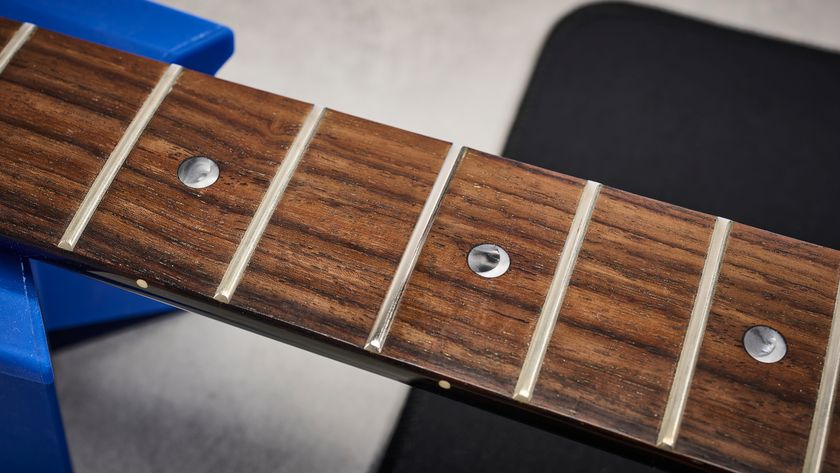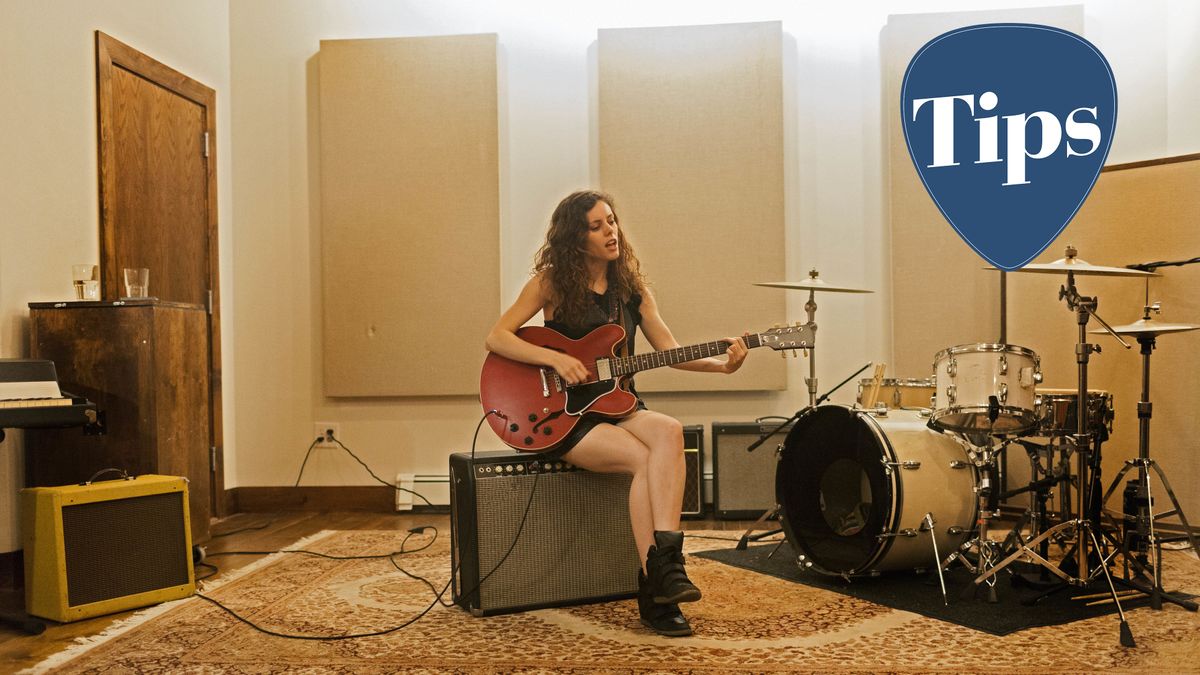
Ever rubbed your belly and patted your head at the same time? Well, it will make anyone look ridiculous and it won’t help you here. But seriously now, the principle of doing two seemingly unrelated things at once can be just as alien and as off-putting for many would-be singer / guitarists. Don’t dismay; it’s not rocket science, and you’re only going to get better if you follow our guide.
Whether you’re looking to be a frontperson in your band, oust your unreliable singer, or need to start supplying backing vocals along with your guitar chops, there are simple ways to start singing while playing the guitar. We’ll all be pulling those Springsteen / Tele moves in no time…
1. Guitar first

It’s all about getting the guitar playing sorted so you can then focus on the singing. Firstly, you need to know the song you're performing. This sounds obvious, but plenty of people will rush in without actually doing this; you need to know the song well. Get comfortable with the melody and inflections, and sing over the record to practise.
Forget singing actual lyrics and anything riffy for now. Begin by strumming the chords to a song you know and humming the vocal melody at the same time. When you can do this while staying in time, move on…
2. Learn the changes
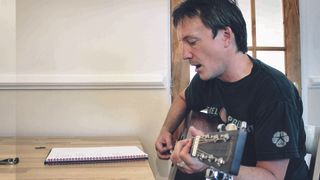
Focus on the key guitar strumming patterns and what lyrics the chord changes occur on. Simplify strumming to begin with to get comfortable, then build up to a busier rhythm.
3. Use a visual aid
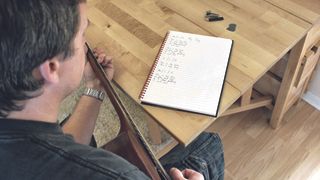
Write out and read the lyrics and chords in front of you – it really helps – and tackle things in bite-sized chunks by singing and playing the verse or chorus over and over.
4. Don't watch your hand

If you’re constantly looking at your strumming hand during chord changes, then you’re almost definitely not concentrating on singing and projecting your voice.
Get the MusicRadar Newsletter
Want all the hottest music and gear news, reviews, deals, features and more, direct to your inbox? Sign up here.
5. Keep in time
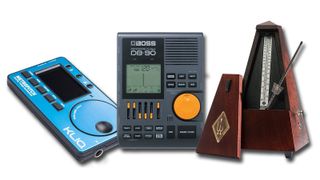
Is your strumming rhythm going off? Try using a metronome to help stay in time.
6. R&R: record and repeat

Be critical – your mobile phone will do for a rough recording. What you hear in your head isn’t always accurate and you’ll be able to focus on areas to improve on.
And don't give up on a song – every time you try, you get better.
7. Learn a repertoire (these songs are good to start with)
Broaden your new multitasking skills and even if you’re not into becoming a covers act, you can always break these tunes out around a campfire. They also don't demand too much vocally so make for ideally starting points as you build your singing/playing skills…
Green Day – Time Of Your Life (Good Riddance)
Oasis – Wonderwall
Pink Floyd – Wish You Were Here
8. Develop your skills with riffs and fingerpicking
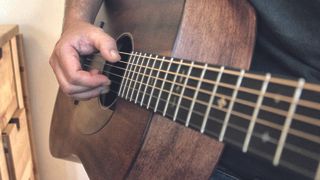
If you’re building up to singing and playing, single-note parts such as riffs and more intricate fingerpicking can feel a lot more of a challenge.
You need to be able to play the riff part in your sleep so it becomes a muscle memory thing. Play it as you watch TV, while you talk to people, while you eat at the dinner table…
Better acoustic fingerpicking in 20 minutes
9. Use the alphabet trick

Try playing the riff while reciting the alphabet in full
You may feel silly doing this at first but it's worked for us when we've had to play riffs while singing. Try playing the riff while reciting the alphabet in full. Keep doing this and as you get more confident, try singing the alphabet with the melody of the song you're learning. Then with the actual lyrics.
10. Slow and steady wins

If it’s a fingerpicked part, it’s vital to start slow. Ensure you’ve got the guitar part down before considering adding vocals. Don’t dive in at full speed; it makes everything feel 10 times harder.
Start fingerstyle guitar with this lesson
11. Try these songs to develop picking and riff skills
Nirvana – Come As You Are
The White Stripes – Seven Nation Army
The Beatles – Blackbird
12. Write songs


Writing parts to play and sing is actually the best way to get better, because you’re working on both from the inception rather than trying to add one to the other later.
The next time you come up with a chord progression or riff, start thinking what kind of a vocal melody could complement it straight away.
Trying coming up with a vocal and guitar part in your head and then learn to play it – it’s amazing the leaps you can make as a singer/ guitarist when you’re being creative.
7 ways to improve your rhythm guitar tone

Rob is the Reviews Editor for GuitarWorld.com and MusicRadar guitars, so spends most of his waking hours (and beyond) thinking about and trying the latest gear while making sure our reviews team is giving you thorough and honest tests of it. He's worked for guitar mags and sites as a writer and editor for nearly 20 years but still winces at the thought of restringing anything with a Floyd Rose.
